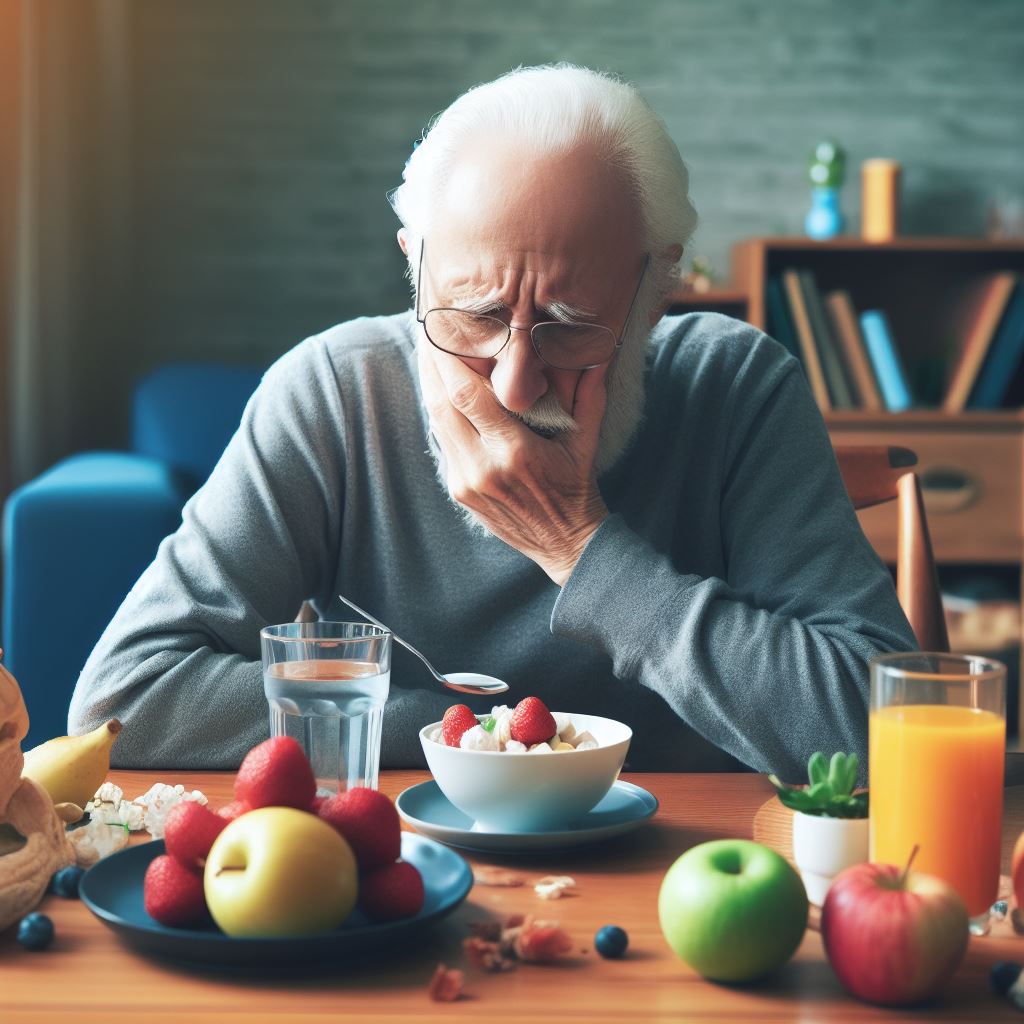Loss of appetite in older adults is a common and complex problem that can impact their overall health. Several factors can contribute to this phenomenon, such as physiological changes, medications, depression, and social isolation. To help older people maintain a healthy diet, it is important to understand the causes and implement appropriate solutions.
I. Causes of loss of appetite in the elderly:
1. Physiological Changes :
The aging process is accompanied by many physiological changes that can affect appetite. For example, reducing the production of certain hunger-related hormones, such as ghrelin, can reduce feelings of hunger. Additionally, the body’s ability to digest and absorb nutrients may decline with age, which can make meals less rewarding.
2. Health Problems:
Older people are more likely to develop health problems that can affect their appetite. Gastrointestinal disorders, such as ulcers, constipation, or dyspepsia, can cause abdominal pain or discomfort that discourages food consumption. Additionally, chronic illnesses such as diabetes, hypertension, and heart disease may require specific diets that may not be palatable.
3. Medications:
Older adults often take multiple medications to manage various medical conditions. Some of these medications, such as antidepressants, opioid pain relievers, or blood pressure medications, have side effects that include loss of appetite.
4. Taste and smell disorders:
With age, sensitivity to taste and smell may decrease, which can make foods less appetizing. Older adults may perceive foods as less tasty, which can lead to a loss of interest in food.
5. Depression and anxiety:
Mental health problems, such as depression and anxiety, are common among older adults but are often underdiagnosed. These conditions can lead to loss of appetite by reducing interest in daily activities, including eating.
6. Social Isolation:
Lack of companionship and social interaction can contribute to loss of appetite. Eating is often a social experience, and older adults who live alone or isolated may lose motivation to prepare meals or share them with others.
7. Difficulty chewing and swallowing:
Dental problems, poorly fitting dentures, or swallowing disorders can make eating meals difficult and uncomfortable, thereby discouraging food intake.
II. Solutions for managing loss of appetite in seniors:
1. Medical consultation:
The first step is to consult a health professional to assess the underlying medical causes of loss of appetite. A doctor can perform a complete health check, including blood tests to check for nutritional deficiencies.
2. Balanced diet:
Providing nutrient-dense meals is essential. It is advisable to favor fresh, colorful, and varied foods. Meals should be tailored to individual preferences to make them more appealing.
3. Nutritional Supplements:
In some cases, a doctor may recommend nutritional supplements, such as nutritional drinks or vitamins, to compensate for nutritional deficiencies.
4. Treatment of Health Conditions:
Proper management of underlying health conditions is essential. For example, treating chronic pain or gastrointestinal disorders can improve appetite.
5. Psychological support:
Treatment of depression and anxiety is essential to stimulate appetite. Cognitive behavioral therapies and medications may be recommended by a mental health professional.
6. Encourage socialization:
Social interaction is a powerful appetite stimulant. Encourage shared meals with family, friends, or community groups. Organize trips or social activities to combat isolation.
7. Physical Activity:
Light physical activity, such as walking, can help stimulate appetite and maintain better overall health. It is important to adapt the exercise to the physical capacity of the elderly person.
8. Management of dental problems:
Regular dental care and well-fitted dentures can improve your ability to eat. Meals should be adapted to take into account chewing and swallowing difficulties.
9. Meal frequency:
Offer more frequent meals and nutritious snacks between meals to increase overall calorie intake.
10. Food consistency:
If the person has difficulty chewing, offer foods of appropriate consistency, such as purees or softer foods.
11. Medication Evaluation:
If you think your medications are causing loss of appetite, discuss changing your medication or exploring alternatives with your doctor.
12. Regular Monitoring:
Regular monitoring of nutritional status and appetite is important to adapt strategies over time and ensure that nutritional needs are met.
It is essential to consider the individual needs of each older person and work collaboratively with healthcare professionals to put in place an appropriate plan for managing loss of appetite. The holistic approach, which combines medical, nutritional, psychological, and social interventions, is often the most effective in improving the appetite and overall health of older adults.
Finally, it is important to note that loss of appetite in older adults is often multifactorial, resulting from the complex interaction of several of these factors. Therefore, a thorough medical evaluation is necessary to identify the specific causes in each individual and implement appropriate solutions.

